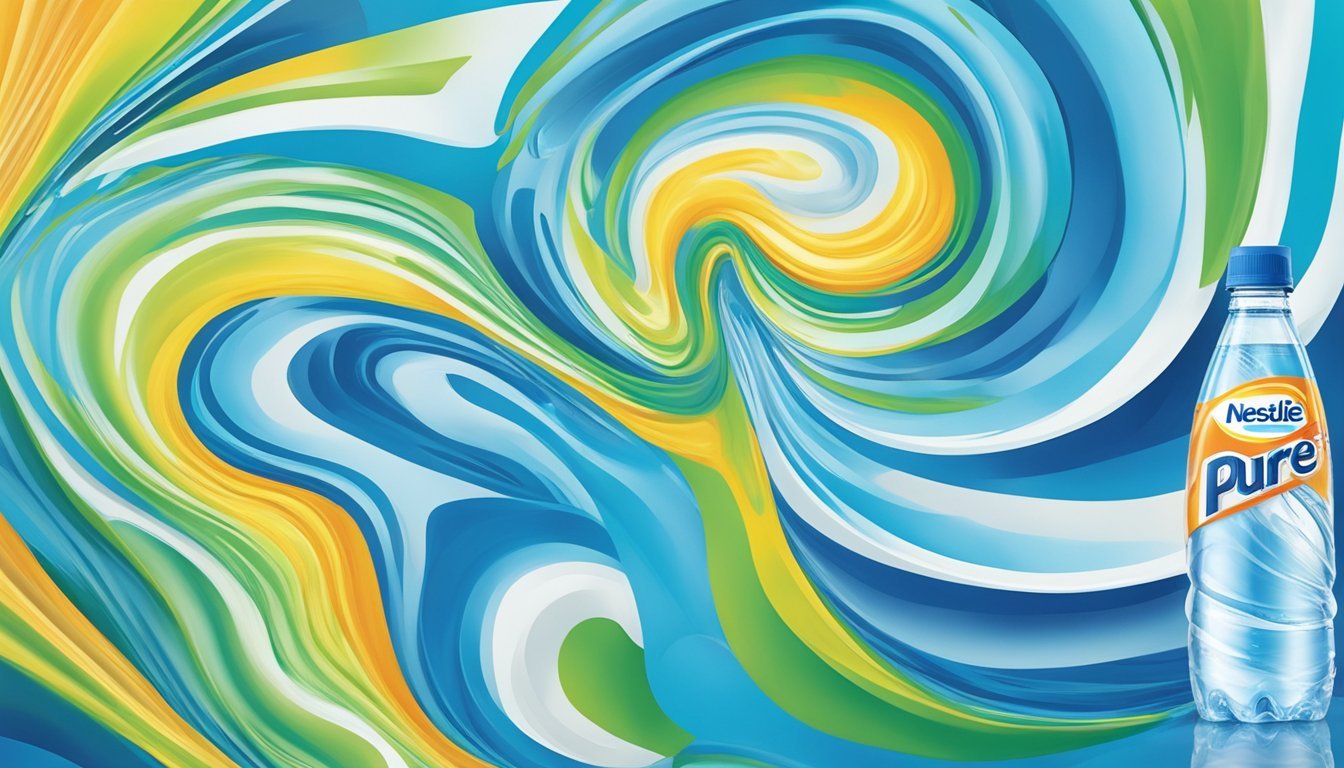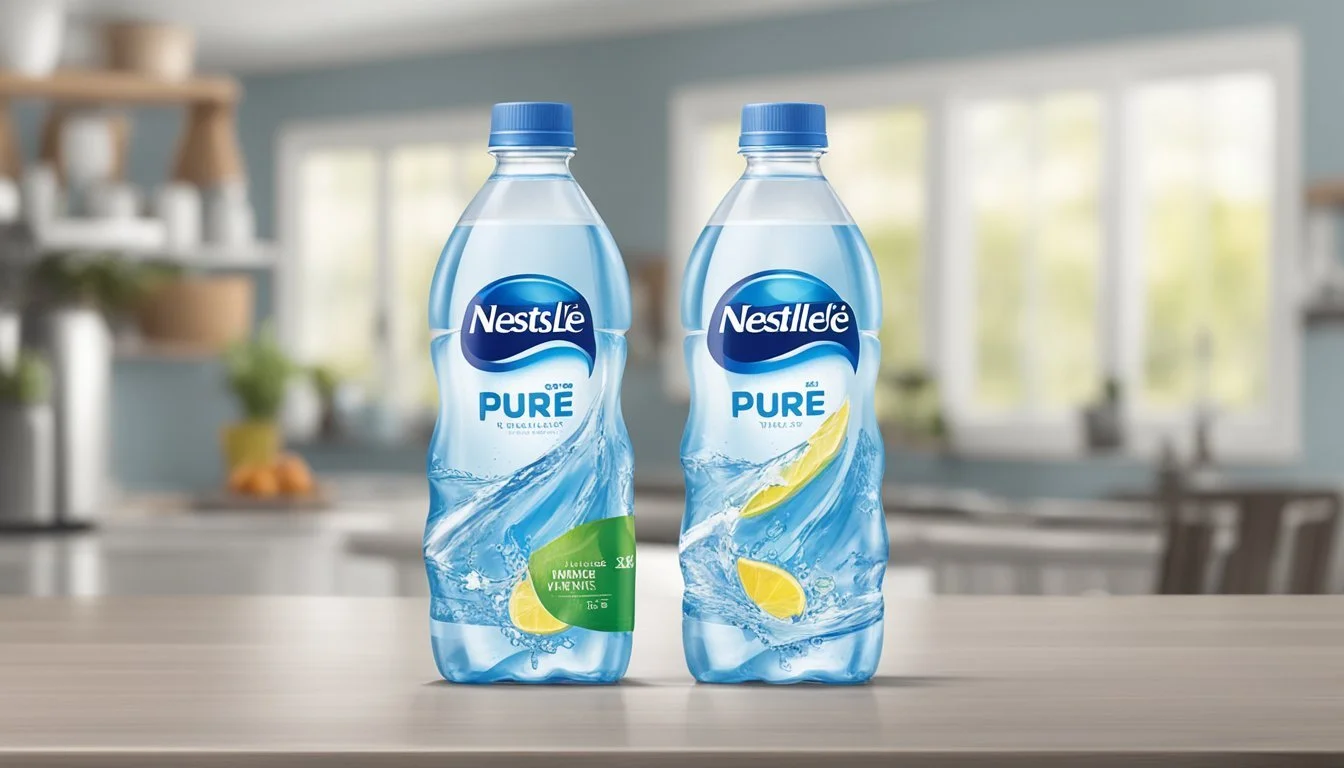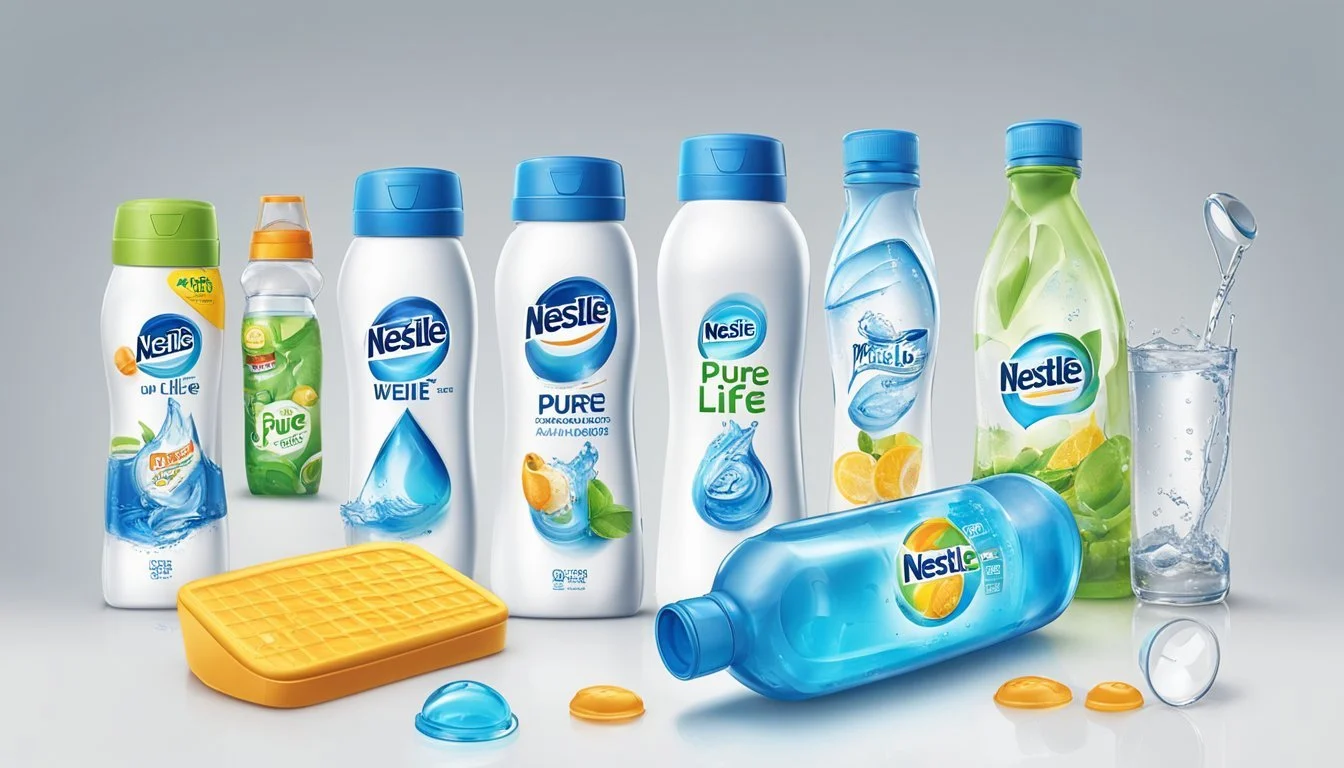Nestlé Pure Life vs. Weird Water
Which Bottled Water is Better? A Comprehensive Comparison
When it comes to choosing bottled water, consumers often find themselves comparing well-known brands like Nestlé Pure Life to newcomers like Weird Water. Each brand offers unique attributes, making the decision complex yet interesting. While Nestlé Pure Life is recognized for its global presence and affordability, Weird Water positions itself as a niche brand focusing on premium quality.
For those seeking reliable hydration without breaking the bank, Nestlé Pure Life stands out. Known for its accessibility and reasonable pricing, this brand has become a staple in households around the world. On the contrary, Weird Water appeals to those who prefer artisan bottled water with distinctive sourcing and processing techniques, often coming at a higher price point.
Consumers must weigh their priorities when making a choice between these two options. Whether it’s the assurance of widespread availability with Nestlé Pure Life or the allure of specialized, high-quality water with Weird Water, the decision ultimately hinges on personal preference and values.
Unveiling Nestlé Pure Life
Nestlé Pure Life is one of the most recognized brands in the bottled water industry. This section explores its brand reputation, water sources, purification process, health benefits, sustainability efforts, and consumer experience.
Brand Overview and Reputation
Nestlé Pure Life, part of Nestlé Waters, has established a significant reputation in the bottled water market. It is known for its large portfolio under Nestlé, which includes other brands such as Poland Spring and Perrier.
Trusted globally, it aims to deliver consistent quality and reliability. The brand emphasizes comprehensive quality assurance protocols to ensure that each bottle meets high standards.
Sourcing and Purification Process
Nestlé Pure Life sources its water from protected springs and aquifers. This ensures the natural purity of the water before it even reaches the bottling process. The water undergoes a multiple-stage filtration system designed to eliminate impurities while preserving essential minerals. These stages include carbon filtration, microfiltration, and UV treatment to ensure safety and taste.
Health Benefits and Mineral Content
The health benefits of Nestlé Pure Life come from its mineral content. It contains essential minerals like calcium, magnesium, and potassium, which are vital for maintaining good health. These minerals contribute to overall hydration and well-being. The water's balanced mineral composition supports daily nutritional needs without any artificial additives.
Sustainability and Environmental Practices
Nestlé Pure Life prioritizes sustainability and environmental responsibility. The brand engages in several eco-friendly practices, such as using recyclable packaging materials and reducing its carbon footprint. Efforts to improve the recycling rates and incorporate more recycled plastics into their bottles highlight their commitment to environmental stewardship. They also focus on water conservation at their sources.
Consumer Experience and Accessibility
Consumers often appreciate the neutral taste and balanced mineral profile of Nestlé Pure Life. This makes it a popular choice for daily hydration. The brand’s broad distribution network ensures that the water is widely available in various retail and online outlets, enhancing convenience. The consumer-friendly pricing further boosts its accessibility, making it a go-to option for many families.
Exploring Weird Water
Weird Water sets itself apart in the bottled water market through its innovative approach, commitment to purity, and eco-friendly initiatives. The following examination covers its brand vision, quality standards, unique selling points, health impacts, and environmental policies.
Brand Vision and Distinctive Appeal
Weird Water appeals to consumers through its bold and fresh branding rooted in innovation.
Its mission focuses on delivering hydration through unique and sustainable practices. Weird Water aims to provide a distinct drinking experience by incorporating natural elements and advanced water treatment technologies. Their branding emphasizes transparency, both in their product contents and their business practices, fostering trust and loyalty among a discerning consumer base.
The vibrant marketing strategy resonates especially with environmentally-conscious and health-aware individuals.
Quality and Purity Standards
Weird Water emphasizes rigorous quality control to ensure the highest levels of water purity.
They utilize advanced multi-stage filtration processes designed to remove contaminants while preserving essential minerals. Their filtration technology reflects their commitment to both safety and taste, meeting stringent industry standards.
Regular third-party testing confirms their compliance with safety regulations, offering enhanced assurance to consumers. Their dedication to maintaining high quality is a cornerstone of their reputation, positioning them as a reliable choice for hydration.
Unique Selling Propositions
Weird Water stands out with several unique selling points that appeal to modern consumers.
Firstly, the inclusion of natural electrolytes sets it apart from other brands, promoting enhanced hydration and taste. Secondly, their packaging innovations feature eco-friendly materials, including recyclable and reduced-plastic options, aligning with growing consumer preferences for sustainability.
Lastly, Weird Water offers a range of sizes and product variations, catering to diverse consumer needs and preferences, from sports hydration to everyday drinking.
Effect on Health and Wellness
Weird Water contributes to health and wellness through its clean, mineral-rich water.
The inclusion of natural electrolytes aids in maintaining optimal hydration levels, which is crucial for physical performance and overall well-being. Its purity standards ensure that the water is free from harmful contaminants, providing a safer hydration option.
Additionally, their focus on transparency allows consumers to trust the brand, knowing they are consuming a product that supports their health goals.
Connection to the Environment and Recycling Initiatives
Weird Water places significant emphasis on minimizing its environmental impact.
Their recycling initiatives encourage the proper disposal and reuse of plastic bottles, promoting a circular economy. Innovative packaging uses reduced-plastic materials and seeks alternatives to traditional plastic, such as biodegradable options.
They actively participate in and support environmental campaigns, reflecting their commitment to sustainability. This focus not only benefits the planet but also attracts a customer base that values environmentally responsible products.
Comparative Analysis
This section provides a detailed comparison between Nestlé Pure Life and Weird Water, examining various critical aspects such as taste, source, health benefits, environmental impact, and market performance.
Taste and Aesthetic Experience
Nestlé Pure Life
Nestlé Pure Life emphasizes consistency in taste. The water undergoes a multi-step purification process that removes impurities and results in a fresh taste. Reviews indicate that it is neutral and clean, making it a popular choice for everyday hydration.
Weird Water
Weird Water is noted for its distinctive flavor profile, attributed to its natural spring source and added minerals. It offers a more robust taste compared to the neutral profile of Nestlé Pure Life, appealing to those who prefer a slightly flavored water.
Water Sources and Filtration Methods
Nestlé Pure Life
Sourced from various wells, Nestlé Pure Life is classified as purified water. It undergoes multiple phases of filtration, including reverse osmosis, that ensure the removal of contaminants. The brand maintains stringent quality controls to keep the water safe and pure.
Weird Water
Weird Water prides itself on sourcing from protected natural springs. The spring water is minimally filtered to preserve its natural minerals, giving it an authentic taste. The source's purity and the brand's lesser reliance on heavy filtration set it apart from Nestlé Pure Life.
Nutritional Content and Health Contributions
Nestlé Pure Life
Nestlé Pure Life focuses on purified water, often supplemented with added minerals such as calcium, magnesium, and sodium. These additions are intended to improve taste and contribute to daily mineral intake, although the concentrations are generally low.
Weird Water
Weird Water sources its minerals naturally from its spring. It may contain higher natural electrolyte levels, benefiting those who seek hydration with added health benefits. The presence of naturally occurring minerals like calcium and magnesium aids in maintaining balanced nutrient levels.
Environmental Commitment and Footprint
Nestlé Pure Life
Nestlé Pure Life has faced criticism for its environmental impact, given the extensive use of plastic bottles. The company has made efforts to improve its sustainability practices, such as using recycled plastic in its packaging and supporting water conservation initiatives.
Weird Water
Weird Water is marketed as an eco-friendly option. The brand uses biodegradable packaging and focuses on minimizing its carbon footprint throughout the production process. Their commitment to environmental sustainability aligns with growing consumer preferences for green products.
Market Presence and Consumer Satisfaction
Nestlé Pure Life
Nestlé Pure Life is one of the most recognizable bottled water brands globally. Its wide availability and affordability contribute to its strong market presence. Consumer feedback generally highlights reliability and consistent quality, making it a staple in many households.
Weird Water
Weird Water, though not as ubiquitous as Nestlé Pure Life, has gained a loyal customer base. Consumers appreciate the unique taste and eco-friendly packaging. Its popularity is growing, driven by word-of-mouth and a niche market of health-conscious and environmentally aware customers.
Bottled Water Industry and Market Trends
The bottled water industry is influenced by changing consumer preferences, technological advancements, and regulatory requirements. Key trends include evolving consumer demands for healthy hydration options, new technologies in purification processes, innovations in packaging, and stringent regulatory compliance to ensure safety and quality.
Evolving Consumer Demands
Consumers are increasingly prioritizing health and convenience. Bottled water is favored for its perceived purity and health benefits compared to sugary beverages.
There is a growing demand for sustainable options. Brands are responding by using recycled materials and reducing plastic usage. This trend reflects a broader consumer movement towards eco-friendly products. Convenience and portability also drive the popularity of bottled water, making it a staple in daily hydration routines.
Technological Advances in Purification
Technological advancements have significantly impacted the purification process of bottled water. Techniques such as reverse osmosis and advanced filtration processes ensure high-quality water. These methods remove contaminants, improving taste and safety.
Companies like Nestlé Pure Life implement multi-step purification to maintain consistency and adherence to quality standards. Technological progression in the industry focuses on enhancing purification efficiency while maintaining cost-effectiveness.
Packaging Innovations and Alternatives
Innovations in packaging are crucial due to increasing environmental concerns. Brands are exploring alternatives to traditional plastic bottles, such as biodegradable materials and plant-based plastics.
Efforts are being made to enhance the recyclability of packaging. Lightweight bottle designs reduce material usage, and resealable, reusable packaging options cater to eco-conscious consumers. These innovations aim to align with sustainability goals while providing functional and appealing packaging solutions.
Regulatory and Quality Compliance
Regulatory compliance is vital in the bottled water industry to ensure consumer safety. The FDA sets stringent regulations for bottled water, covering aspects from sourcing to bottling. Compliance with these regulations assures quality and safety standards are met.
Quality assurance involves regular testing for contaminants. Brands must adhere to safety standards, including proper labeling and ensuring the integrity of the sealing process. These measures protect consumer health and sustain trust in bottled water products.
Health and Safety Considerations
When comparing Nestlé Pure Life and Weird Water, it is crucial to consider both the health impacts associated with each and the measures taken to ensure their safety and quality. This involves understanding the potential contaminants, benefits of minerals present, and the relevant certifications and regulations.
Impact on Human Health
Both Nestlé Pure Life and Weird Water provide essential hydration. Nestlé Pure Life contains beneficial minerals like calcium and magnesium, contributing to daily mineral intake. In contrast, Weird Water may include unique mineral compositions depending on its source, potentially offering alternative health benefits.
Contaminants: Studies indicate microplastics are present in most bottled waters, including Nestlé Pure Life. The potential health implications of these microplastics are not fully understood. Weird Water's contamination level varies but also warrants scrutiny.
Health Benefits: Regularly consuming mineral-rich water can augment dietary mineral intake. Consumers should verify the specific mineral content on each bottle, as it can differ significantly.
Quality Assessment and Assurance
Quality assurance is a top priority for both brands. Nestlé Pure Life implements a comprehensive multi-stage filtration process to ensure safety. They also maintain stringent quality checks.
Filtration and Quality Checks: Nestlé Pure Life undergoes several stages of filtration, dedicated to removing contaminants. Regular laboratory tests bolster this, ensuring consistent safety and quality.
Weird Water's Approach: The brand's filtration and quality assessment methods depend on its source. If sourced from protected springs or other natural reserves, the natural filtration processes may complement additional purification steps.
Transparency: Consumers should look for detailed water quality reports often provided by reputable brands. This transparency helps build trust and assures consumers of the water's safety.
Certification and Regulation Insights
Regulatory compliance is critical for bottled water brands. Nestlé Pure Life adheres to stringent safety standards set by authorities like the FDA. These regulations cover permissible contaminant levels and the presence of beneficial minerals.
FDA Regulations: Ensuring adherence to FDA guidelines guarantees that Nestlé Pure Life meets safety and quality standards. FDA regulations encompass permissible contaminant levels, enhancing consumer safety.
Third-Party Certifications: Third-party certifications, including those from independent health organizations, provide additional layers of validation. Consumers are encouraged to check for these certifications, indicating higher levels of scrutiny and assurance.
Operational Standards: Nestlé Pure Life follows rigorous operational standards, maintaining consistency in quality. Weird Water's compliance with similar standards ensures its products are safe and meet established criteria.
More About Nestlé Pure Life
Acqua Panna vs Nestle Pure Life: Which Bottled Water is Better?
Aquafina vs Nestle Pure Life: Which Bottled Water is Better?
Arrowhead vs Nestle Pure Life: Which Bottled Water is Better?
Boxed Water vs Nestle Pure Life: Which Bottled Water is Better?
Core Hydration vs Nestle Pure Life: Which Bottled Water is Better?
Deer Park vs Nestle Pure Life: Which Bottled Water is Better?
Essentia vs Nestle Pure Life: Which Bottled Water is Better?
Ice Mountain vs Nestle Pure Life: Which Bottled Water is Better?
Icelandic Glacial vs Nestle Pure Life: Which Bottled Water is Better?
Just Water vs Nestle Pure Life: Which Bottled Water is Better?
Mountain Valley Spring Water vs Nestle Pure Life: Which Bottled Water is Better?
Nestle Pure Life vs 1907water: Which Bottled Water is Better?
Nestle Pure Life vs 7-Select: Which Bottled Water is Better?
Nestle Pure Life vs Alkaline88: Which Bottled Water is Better?
Nestle Pure Life vs Antipodes: Which Bottled Water is Better?
Nestle Pure Life vs Aqua Carpatica: Which Bottled Water is Better?
Nestle Pure Life vs Big Chill: Which Bottled Water is Better?
Nestle Pure Life vs BodyArmor: Which Bottled Water is Better?
Nestle Pure Life vs Cascade Mountain: Which Bottled Water is Better?
Nestle Pure Life vs Castle Rock: Which Bottled Water is Better?
Nestle Pure Life vs CBD Living: Which Bottled Water is Better?
Nestle Pure Life vs Crystal Geyser: Which Bottled Water is Better?
Nestle Pure Life vs Crystal Lake: Which Bottled Water is Better?
Nestle Pure Life vs Essence pH10: Which Bottled Water is Better?
Nestle Pure Life vs Hawaii Volcanic: Which Bottled Water is Better?
Nestle Pure Life vs Hawaiian Springs: Which Bottled Water is Better?
Nestle Pure Life vs Kirkland Signature: Which Bottled Water is Better?
Nestle Pure Life vs Liquid Death: Which Bottled Water is Better?
Nestle Pure Life vs Mananalu: Which Bottled Water is Better?
Nestle Pure Life vs Open Water: Which Bottled Water is Better?
Nestle Pure Life vs Poland Spring: Which Bottled Water is Better?
Nestle Pure Life vs Proud Source: Which Bottled Water is Better?
Nestle Pure Life vs Pure Life: Which Bottled Water is Better?
Nestle Pure Life vs Purely Sedona: Which Bottled Water is Better?
Nestle Pure Life vs Refreshe: Which Bottled Water is Better?
Nestle Pure Life vs Richard's Rainwater: Which Bottled Water is Better?
Nestle Pure Life vs San Pellegrino: Which Bottled Water is Better?
Nestle Pure Life vs Simple Truth: Which Bottled Water is Better?
Nestle Pure Life vs Smartwater: Which Bottled Water is Better?
Nestle Pure Life vs Solan de Cabras: Which Bottled Water is Better?
Nestle Pure Life vs Talking Rain AQA: Which Bottled Water is Better?
Nestle Pure Life vs The Well: Which Bottled Water is Better?
Nestle Pure Life vs Topo Chico: Which Bottled Water is Better?
Nestle Pure Life vs Tru Alka: Which Bottled Water is Better?
Nestle Pure Life vs Whole Foods 365: Which Bottled Water is Better?
Nestle Pure Life vs Whole Foods Italian Still Mineral water: Which Bottled Water is Better?
Nestle Pure Life vs Zephyrhills: Which Bottled Water is Better?
More About Weird Water
Aqua Carpatica vs Weird Water: Which Bottled Water is Better?
Cascade Mountain vs Weird Water: Which Bottled Water is Better?
Core Hydration vs Weird Water: Which Bottled Water is Better?
Crystal Geyser vs Weird Water: Which Bottled Water is Better?
Hawaii Volcanic vs Weird Water: Which Bottled Water is Better?
Hawaiian Springs vs Weird Water: Which Bottled Water is Better?
Icelandic Glacial vs Weird Water: Which Bottled Water is Better?
Mountain Valley Spring Water vs Weird Water: Which Bottled Water is Better?
Poland Spring vs Weird Water: Which Bottled Water is Better?
Purely Sedona vs Weird Water: Which Bottled Water is Better?
Richard's Rainwater vs Weird Water: Which Bottled Water is Better?
San Pellegrino vs Weird Water: Which Bottled Water is Better?
Solan de Cabras vs Weird Water: Which Bottled Water is Better?
Talking Rain AQA vs Weird Water: Which Bottled Water is Better?
Weird Water vs Kirkland Signature: Which Bottled Water is Better?
Weird Water vs Whole Foods 365: Which Bottled Water is Better?
Whole Foods Italian Still Mineral water vs Weird Water: Which Bottled Water is Better?





